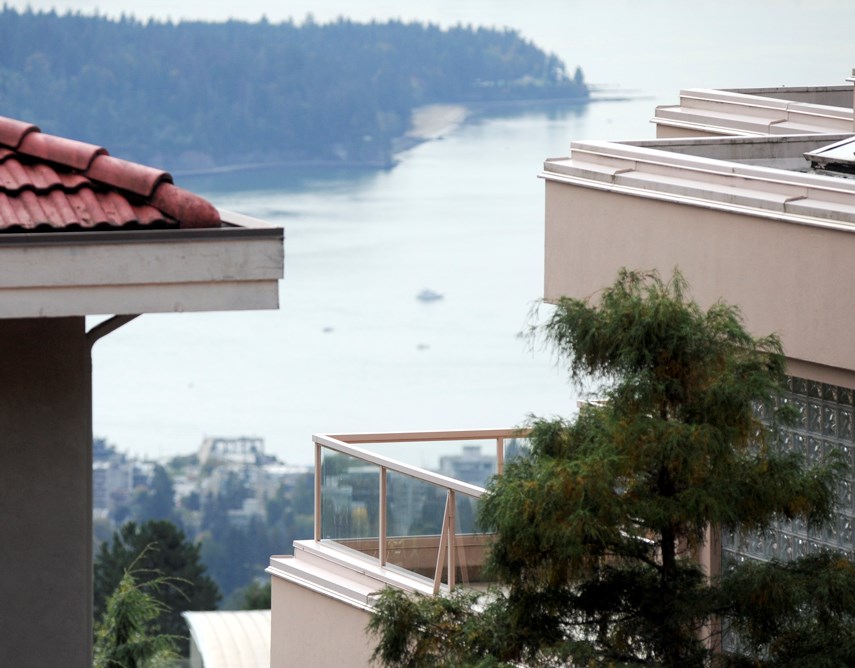Figures from the finance ministry show West Vancouver homeowners will pay the fourth highest speculation and vacancy tax in the province for the 2020 fiscal year.
West Vancouver property owners will pay $5.9 million in vacancy tax, according to the province. That’s the fourth highest amount in B.C., after Vancouver (where property owners will pay $21.5 million in the tax), Richmond (where owners will pay $8.7 million) and Surrey (where owners will pay just slightly more than West Van, at $5.95 million.)
In the case of West Vancouver, however, far fewer properties – just 152 – are being assessed the speculation and vacancy tax, compared to larger municipalities, where between 600 and 1,100 owners paid the tax in each.
That means the average bill for that tax in West Vancouver – where assessments are among the highest in the country – is significantly higher.
The speculation and vacancy tax was introduced by the NDP government in 2018 as a way of raising money for affordable housing projects as well as giving owners an incentive not to leave secondary homes sitting empty. The tax was also intended as a disincentive to foreign owners buying up real estate for investment purposes only.
In West Vancouver, foreign owners, satellite families (where some members of a family live locally but the breadwinner is typically based abroad) and ownership involving a mix of those – including those who hadn’t declared ownership status – accounted for two-thirds of those (102 owners) paying the tax.
They also paid the lion’s share of the dollar amount for speculation and vacancy tax assessed in West Vancouver at $5.14 million.
The tax paid by foreigners and satellite families is assessed at a rate of two per cent compared to .5 per cent for Canadian citizens and permanent residents.
But 43 B.C. residents and seven other Canadian residents also paid the tax in West Vancouver.
The total amount of speculation and vacancy tax paid in West Vancouver is down this year from the $6.9 million and $6.7 million paid in previous fiscal years. The number of properties being assessed the tax is up slightly this year from 131 properties last year, but still down from the 337 properties assessed in the initial 2018 fiscal year.
As in past years, about one per cent of all properties in West Vancouver were assessed the speculation and vacancy tax, a percentage similar to Richmond, but about twice the percentage in either Vancouver or Surrey.
According to ministry figures, about nine per cent of homes in West Vancouver have some kind of foreign ownership (including those owned by foreigners, satellite families, corporations, trusts and those with mixed types of ownership).
Previously, SFU researcher Andy Yan put that figure slightly higher. Yan estimated foreigners own 12.7 per cent of single-family homes in West Vancouver.
A vast majority of the approximately 1,351 foreign-owned residential properties in West Vancouver qualified for an exemption to the tax, according to the ministry.
The biggest category for exemption was owners who were occupying the home as a principal residence. The second biggest exemption category was for homes being rented to long-term tenants.
Elsewhere on the North Shore there was far less of the speculation and vacancy tax paid by property owners.
In the District of North Vancouver, just 85 owners of non-exempt properties paid about $1.06 million in the tax. Of about 27,855 residential properties in the District of North Vancouver, foreign owners, satellite families, corporations or a combination of owners owned 922 properties.
In the City of North Vancouver, 82 owners of non-exempt properties paid about $665,000 in the tax. Foreign owners, satellite families, corporations or a combination of owners owned a total of 1,062 city properties.
According to the government, estimated revenue received from the tax for the 2020 tax year is about $81 million province-wide.
Owners declare their ownership status and property use for the prior year in the spring and tax notices are due along with regular property taxes in July.
West Vancouver council has in the past asked the province for the power to hit absentee homeowners with its own speculation and vacancy tax, arguing West Vancouver sees very little provincial money spent on housing in the municipality despite its residents' comparatively large contribution to the speculation and vacancy tax.



.jpg;w=120;h=80;mode=crop)
